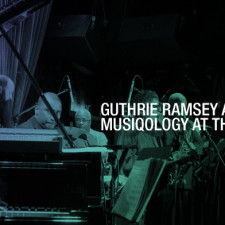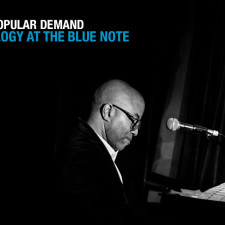Black Music Month Day #29
Note: This is my final 2011 Black Music Month post. Tomorrow, I will publish an index to the entire series. I hope you have enjoyed the writing and the music. Happy Summer!–GR
Although the official calendar doesn’t agree, for most of us, July is the start of summer. What better time to think about some musical meditations on this month when “the living is easy,” as one songwriter put it? Each of these pieces—“Summer Breeze” performed by the Isley Brothers, “Summer Madness” by Kool and the Gang, and “Summertime” performed by Bridget Ramsey—originated in different cultural settings. What links them, however, is how each through sound organization attempts to evoke the warmth, pace, and peacefulness of those lazy, hazy days of our memories.
~BREEZE
“Summer Breeze,” written by soft rockers Jim Seals and Dash Crofts, enjoyed hit status in the summer of 1972. The piece eases along at a medium tempo with a “storytelling” narrative full of simplistic everyday scenes of summer. There’s nothing particularly nostalgic about the lyrics but the music renders them so. Although the song seems to toggle between two keys—g and its relative minor e (chorus and verse respectively), a structure that would suggest a certainly level of complexity, the toy piano heard in the interlude denotes something else. Against a rolling arpeggio on another instrument, the melody on the piano suggests memory, time passing, and childhood, a gesture that seems to override any idea of adult complexity in the recording.
 The Isley Brothers, an R&B group, covered the song the very next year, dipping it in molasses and honey butter. Slowing it down to almost half its original tempo, their “Summer Breeze” takes on a different character by toying with the form and other elements of the original song. Two gestures stand out here. They take the smallish toy piano interlude and stretch it out, repeating the i-iv chord progression to make a groove at the top and a hard-rock jam by Ernie Isley (guitarist) at the end. (This is a version of the I-IV progression that one hears in shouting music in black Pentecostal churches). Although the vocals are generally a more complicated matter in the Seals and Croft version, the contrast between Ronald Isley soulfully sung improvisations (with all the bells and whistles) and the pared down presentation of the chorus material give the latter section an almost communal “let’s all sing along at camp” feeling. Or let’s, umm, do something else. It’s the minimalist open structure that gives this version of the song such wide-ranging interpretive potential. That is until the Ernie starts wailing at the end. Then it sounds like a summer outdoor concert.
The Isley Brothers, an R&B group, covered the song the very next year, dipping it in molasses and honey butter. Slowing it down to almost half its original tempo, their “Summer Breeze” takes on a different character by toying with the form and other elements of the original song. Two gestures stand out here. They take the smallish toy piano interlude and stretch it out, repeating the i-iv chord progression to make a groove at the top and a hard-rock jam by Ernie Isley (guitarist) at the end. (This is a version of the I-IV progression that one hears in shouting music in black Pentecostal churches). Although the vocals are generally a more complicated matter in the Seals and Croft version, the contrast between Ronald Isley soulfully sung improvisations (with all the bells and whistles) and the pared down presentation of the chorus material give the latter section an almost communal “let’s all sing along at camp” feeling. Or let’s, umm, do something else. It’s the minimalist open structure that gives this version of the song such wide-ranging interpretive potential. That is until the Ernie starts wailing at the end. Then it sounds like a summer outdoor concert.
~MADNESS
The funk/jazz group Kool and the Gang released “Summer Madness” in 1974. An example of what might be called “minimalist soul,” the song has been sampled by many artists, most prolifically during early 1990s when hip hop producers became enamored with “jazz”—here meaning any musical style from black Diasporic traditions that emphasize instrumental improvisation in the accompaniment or, of course, in the solos. Producers during this period were particularly attracted to tracks that used rich and robust Fender Rhodes sounds.
This piece has only three chords: i-ii-V, each played with lots of gravy on top thanks to keyboardist Rick Westfield. What has charmed folk about “Summer Madness” I think is this minimalism. Scaled back soul. Draw in and groove to this. The synthesizer pitch bending that opens the piece—imitations of the indefinite pitch inflections of black vernacular singing traditions—is an important emotional focal point here. On close listening you can hear the fret noise from bassist Robert “Kool” Bell. This affect could have easily been engineered out of the mix. But it adds intimacy to an electric track. And when guitarist Claydes Charles Smith moves from his hypnotic and emblematic rhythm lick to a solo, we hear it in dialogue with the synth solo. Neither one of these solos embody displays of burning virtuoso runs. If they had, we probably would not have been hearing this chestnut on the radio for this many years. So, in the end it’s the modest quality of the gestures in this piece that slows one down to a proper summer’s pace.
~TIME
 How it flies; especially when I think about this next example featuring a performance by my daughter, Bridget. It is well known that George Gershwin, the composer of “Summertime,” listened to a lot of black music to write authoritatively for his “folk opera” Porgy and Bess, which premiered in (1935). He died two years later and could not have known how many times this piece would be performed (and in countless musical settings).
How it flies; especially when I think about this next example featuring a performance by my daughter, Bridget. It is well known that George Gershwin, the composer of “Summertime,” listened to a lot of black music to write authoritatively for his “folk opera” Porgy and Bess, which premiered in (1935). He died two years later and could not have known how many times this piece would be performed (and in countless musical settings).
For the average listener, it is probably best known as a jazz standard. Its appeal rests not so much in the complex originality of its design, but in its simplicity. Astute listeners will hear the poetry structure as a/b/a/c. The harmonic structure toys with the blues but frustrates such a hearing with a quick flirt with the relative major and then turns around back to minor key. All that to say this: Gershwin wanted “Summertime” to be sing-able, memorable, and feeling-full, something that westerners have been socialized to associate with blues structure. Again, beyond the truth claim of the lyric, minimalism in structure, poetic form, and tempo conjoin to signify summer.
In this performance, Miss Bridget moves in an out of bel canto singing to dialogue with the song’s operatic history, the jazz setting (and, of course, the undergraduate degree requirement for which this performance was conducted—wink). I’ve done a little re-harmonizing to “update” the piece slightly and Dwayne Dugger II on sax (and since this time on tour with Bruno Mars) adds tasteful lines to the mix.
Like Bridget, July is dressed up and playing a tune…
Stay tuned for the release of my CD THE COLORED WAITING ROOM.
HAVE A GREAT SUMMER from DR. GUY’S MUSIQOLOGY!
Tags: Bridget Ramsey, Dwayne Dugger II, George Gershwin, Guthrie Ramsey, Isley Brothers, Kool and the Gang, Porgy and Bess, Seal and Crofts, Summer Breeze, Summer Madness, Summertime






 Share On Facebook
Share On Facebook Tweet It
Tweet It



![[VIDEO] Black Music and the Aesthetics of Protest](https://musiqology.com/blog/wp-content/uploads/2015/03/onlynchings1-225x225.jpg)







